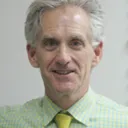Stay in the Loop
BSR publishes on a weekly schedule, with an email newsletter every Wednesday and Thursday morning. There’s no paywall, and subscribing is always free.
My problem with Toby Zinman

Can you feel the joy?
Eurydice and my problem with Toby Zinman
JONATHAN M. STEIN
For some time now I have wanted to share my thoughts about Toby Zinman’s shortcomings as a theater critic. I am saddened by her joyless spirit and her apparent lack of enthusiasm in her reviews for the Inquirer.
As examples, one can examine her dour responses to highly successful Wilma Theater productions, and especially her last, of Eurydice, the final catalyst to engender this complaint.
Most Philadelphia theatergoers look almost exclusively to the Inquirer for direction (no offense to Broad Street Review, may its readers multiply). Such a monopoly of opinion requires a critical look at what the Inky’s main theater critic writes (and perhaps why the Inquirer uses other stand-in feature writers in lieu of experienced theater critics, something not tolerated for the paper’s classical music reviewing).
The recent Zinman review of Eurydice is a case in point. She seems to damn with faint praise, finding some very laudatory aspects of this extraordinary play and production, e.g., "big, bold production," "often-stunning visual images," "outstanding vocal ensemble," "talented" playwright, etc., but gets mired in three initial long paragraphs that lose the reader by stating, almost academically, the host of "questions" she saw in the play and concluding with the tepid and really inapt conclusion that the "intriguing ideas it suggests seem insufficiently developed."
Why must art supply answers?
Zinman totally ignores the almost overwhelming emotive thrust of the play— which other reviewers got— and reduces the experience to a bland intellectual exercise. Ending the review with the equally bland, reductive observation that playwright Sarah Ruhl is "interested" in death and is on a "talented journey" leaves the reader dispirited, and likely seeking out the latest movie at the Ritz Five— perhaps a path that not even Zinman or her editor intended for the reader.
If a main purpose of art— and especially myth, the source of this play— is to challenge your thinking and senses and not to spoon-feed the "answers" to questions, then why must Zinman damn the play for suggesting "intriguing ideas" that aren't '"developed" into a "message"? Indeed, as other reviews of the same production establish (see Mark Cofta in City Paper, or Steve Cohen
or Jim Rutter in Broad Street Review), one can find one's own answers to these questions. But this obsession with seemingly unanswered questions, and a headline reinforcing this conclusion ("...But the stylized production leaves many questions”), is so vapid and pointless— a turn-off for what I found a wonderful re-invention of this classical myth.
Something unique after 2,000 years
Ruhl's primary focus on the woman Eurydice, her addition of the father figure, and her having Eurydice volitionally call out to Orpheus as they exit Hades, are to my mind markedly original and exciting creations after 2,000 years of other interpretations, making for a unique play and the realizing of a woman's distinct voice in the myth’s reinvention. Where is Zinman's recognition of the ingenuity of this creation? Where is the excitement communicated that should go along with something new and original?
And why didn't the Inquirer send Zinman see the New York production last year, knowing almost a year in advance that Eurydice was coming here in a new, original Wilma production, to make a comparison? David Patrick Stearns, the Inky’s chief classical music critic, got up to New York last year to see Ruhl’s Eurydice there, concluding in his recent primarily music review that the various non-music elements at the Wilma "were superior to the last year's production at New York's Second Stage" (which is not a slouch theater).
(To be sure, Stearns is a full-time Inquirer employee whose travel expenses are covered by the paper; Zinman, as a free-lancer, must pay her own way.)
I saw the New York production for this very reason, and can attest to how much better in almost all aspects the Wilma production is: e.g., the stage centrality and use of the River Lethe (where one loses one's memory) at the Wilma; commissioning original music here (from Toby Twining) vs. New York's use of canned Arvo Part music; the three Stones, a mini-Greek chorus staged more originally and compelling here as three aging clowns on bean bags staring at a TV set.
Because Zinman apparently hadn’t seen Ruhl’s Eurydice before, she lost an important point of comparison, which experienced critics often use to make fair critical judgments.
Picky cynicism
Finally— and this is difficult to articulate— there is something of either a burned-out quality, or a picky cynicism or elitism that reappears in Zinman’s reviews. When you read other reviewers below, they open their senses and feelings to the emotional power of Eurydice, something that Zinman's intellectual preoccupations seem to deny her. The result is that her review either eliminates any joy when she appears to like a play, or communicates some damning, missed perfection that turns off the reader from wanting to see the play.
I'm not one to say that critics must be uncritical cheerleaders. But when one sees superior productions of works rarely seen in Philadelphia, and this doesn't get reflected in Philadelphia’s most widely circulated arts section, one has to wonder what is going on at the Inquirer— or in Toby Zinman’s head.
Jonathan Stein, a Center City resident and frequent theatergoer, is general counsel for Community Legal Services Inc.
To read a reply by Jim Rutter, click here.
Eurydice and my problem with Toby Zinman
JONATHAN M. STEIN
For some time now I have wanted to share my thoughts about Toby Zinman’s shortcomings as a theater critic. I am saddened by her joyless spirit and her apparent lack of enthusiasm in her reviews for the Inquirer.
As examples, one can examine her dour responses to highly successful Wilma Theater productions, and especially her last, of Eurydice, the final catalyst to engender this complaint.
Most Philadelphia theatergoers look almost exclusively to the Inquirer for direction (no offense to Broad Street Review, may its readers multiply). Such a monopoly of opinion requires a critical look at what the Inky’s main theater critic writes (and perhaps why the Inquirer uses other stand-in feature writers in lieu of experienced theater critics, something not tolerated for the paper’s classical music reviewing).
The recent Zinman review of Eurydice is a case in point. She seems to damn with faint praise, finding some very laudatory aspects of this extraordinary play and production, e.g., "big, bold production," "often-stunning visual images," "outstanding vocal ensemble," "talented" playwright, etc., but gets mired in three initial long paragraphs that lose the reader by stating, almost academically, the host of "questions" she saw in the play and concluding with the tepid and really inapt conclusion that the "intriguing ideas it suggests seem insufficiently developed."
Why must art supply answers?
Zinman totally ignores the almost overwhelming emotive thrust of the play— which other reviewers got— and reduces the experience to a bland intellectual exercise. Ending the review with the equally bland, reductive observation that playwright Sarah Ruhl is "interested" in death and is on a "talented journey" leaves the reader dispirited, and likely seeking out the latest movie at the Ritz Five— perhaps a path that not even Zinman or her editor intended for the reader.
If a main purpose of art— and especially myth, the source of this play— is to challenge your thinking and senses and not to spoon-feed the "answers" to questions, then why must Zinman damn the play for suggesting "intriguing ideas" that aren't '"developed" into a "message"? Indeed, as other reviews of the same production establish (see Mark Cofta in City Paper, or Steve Cohen
or Jim Rutter in Broad Street Review), one can find one's own answers to these questions. But this obsession with seemingly unanswered questions, and a headline reinforcing this conclusion ("...But the stylized production leaves many questions”), is so vapid and pointless— a turn-off for what I found a wonderful re-invention of this classical myth.
Something unique after 2,000 years
Ruhl's primary focus on the woman Eurydice, her addition of the father figure, and her having Eurydice volitionally call out to Orpheus as they exit Hades, are to my mind markedly original and exciting creations after 2,000 years of other interpretations, making for a unique play and the realizing of a woman's distinct voice in the myth’s reinvention. Where is Zinman's recognition of the ingenuity of this creation? Where is the excitement communicated that should go along with something new and original?
And why didn't the Inquirer send Zinman see the New York production last year, knowing almost a year in advance that Eurydice was coming here in a new, original Wilma production, to make a comparison? David Patrick Stearns, the Inky’s chief classical music critic, got up to New York last year to see Ruhl’s Eurydice there, concluding in his recent primarily music review that the various non-music elements at the Wilma "were superior to the last year's production at New York's Second Stage" (which is not a slouch theater).
(To be sure, Stearns is a full-time Inquirer employee whose travel expenses are covered by the paper; Zinman, as a free-lancer, must pay her own way.)
I saw the New York production for this very reason, and can attest to how much better in almost all aspects the Wilma production is: e.g., the stage centrality and use of the River Lethe (where one loses one's memory) at the Wilma; commissioning original music here (from Toby Twining) vs. New York's use of canned Arvo Part music; the three Stones, a mini-Greek chorus staged more originally and compelling here as three aging clowns on bean bags staring at a TV set.
Because Zinman apparently hadn’t seen Ruhl’s Eurydice before, she lost an important point of comparison, which experienced critics often use to make fair critical judgments.
Picky cynicism
Finally— and this is difficult to articulate— there is something of either a burned-out quality, or a picky cynicism or elitism that reappears in Zinman’s reviews. When you read other reviewers below, they open their senses and feelings to the emotional power of Eurydice, something that Zinman's intellectual preoccupations seem to deny her. The result is that her review either eliminates any joy when she appears to like a play, or communicates some damning, missed perfection that turns off the reader from wanting to see the play.
I'm not one to say that critics must be uncritical cheerleaders. But when one sees superior productions of works rarely seen in Philadelphia, and this doesn't get reflected in Philadelphia’s most widely circulated arts section, one has to wonder what is going on at the Inquirer— or in Toby Zinman’s head.
Jonathan Stein, a Center City resident and frequent theatergoer, is general counsel for Community Legal Services Inc.
To read a reply by Jim Rutter, click here.
Sign up for our newsletter
All of the week's new articles, all in one place. Sign up for the free weekly BSR newsletters, and don't miss a conversation.

 Jonathan M. Stein
Jonathan M. Stein